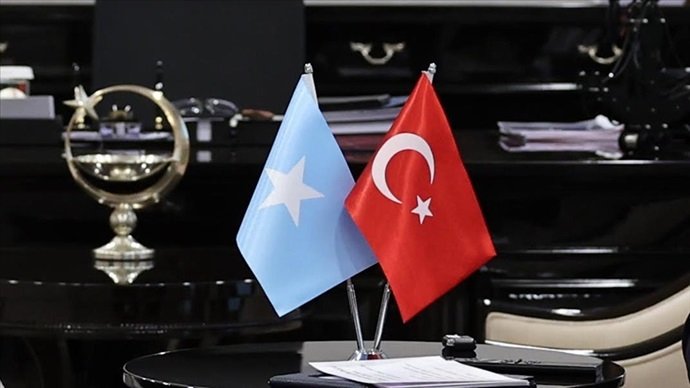Mogadishu (WDN)- In early 2024, Somalia signed a landmark hydrocarbon exploration and production agreement with Turkey. While it’s touted as a strategic partnership, the deal has sparked debate among experts and citizens alike due to several controversial provisions.
The oil and security agreements were secretive arrangements from the Somali government’s side. They were neither presented to the Council of Ministers nor submitted to Parliament for review and approval. Instead, they were solely signed and overseen by President Hassan Sheikh Mohamud, with no involvement or prior knowledge from other branches of Somalia government. The petroleum agreement has now come to public attention after it was published by Nordic Monitor.
Here’s a breakdown of what’s in the deal and why it matters:
Key Provisions and Their Implications
1. Türkiye Gets Exclusive Rights (Article 4.1)
- What it says: Turkey’s national oil company (TPAO or another state entity) has exclusive rights to explore and produce oil in Somalia’s designated areas.
- What it means: No other country or company can participate — making this effectively a monopoly.
- Concern: Somalia loses the ability to diversify partnerships or bring in more competitive terms from others.
2. No Upfront or Ongoing Fees (Article 4.5)
- What it says: Turkey doesn’t have to pay the usual bonuses or fees — such as signature bonuses, production bonuses, or surface fees.
- What it means: Somalia misses out on valuable early revenue that many other developing countries count on.
- Concern: These fees typically provide immediate income to help governments build infrastructure or services — Somalia forfeits that.
3. Türkiye Can Recover Up to 90% of Revenue First (Article 4.7)
- What it says: Turkey can take up to 90% of annual oil/gas revenue to cover costs before any profit is shared.
- Extra clause: If Somalia changes any laws that increase Turkey’s costs, Somalia must pay the difference — even from its own profit share.
- Concern: This delays Somalia’s earnings and puts the financial burden of legal changes on Somalia, not Turkey.
4. Türkiye Keeps Its Oil Profits Abroad (Article 4.8)
- What it says: Turkey can export all its oil and keep the revenue outside Somalia.
- Concern: Somalia loses control over its foreign currency inflows and cannot track or benefit from funds circulating through its own economy.
5. No Requirement for a Local Office (Article 4.2)
- What it says: Turkey is not obligated to establish a local office until production begins — and even then, it’s optional.
- Concern: This limits job creation, skills transfer, and early economic benefits for local communities.
6. Somalia’s Royalty is Capped at 5% (Article 4.6)
- What it says: Somalia can earn up to 5% in royalties — a flat rate, regardless of profits.
- Concern: This is far below global standards (10–20%), meaning Somalia earns very little even if oil production booms.
7. Legal Disputes Go to Istanbul, Not Somalia (Article 10)
- What it says: Any legal disputes between Somalia and Turkey will be settled in international arbitration in Istanbul.
- Concern: Somalia could face bias, high legal costs, and weakened negotiating power in a foreign legal environment.
Overall Risks and Imbalances
Sovereignty Concerns:
- Türkiye gains broad operational control and can even transfer its rights to third parties without Somalia’s consent.
Financial Risk on Somalia:
- If Somalia enacts any policy changes that raise Turkey’s costs, Somalia must compensate Turkey — even from its own profits.
Minimal Local Benefits:
- There’s no obligation for job creation, infrastructure development, or technology transfer to Somalia.
Why Many Somalis Feel Exploited
While the agreement is framed as a partnership, in practice:
- Turkey gets extensive control and protections;
- Somalia takes on most of the financial and legal risks;
- The country earns very little in the early years.
This imbalance reminds many of the early oil deals in the Arab Gulf states:
- In the 1920s, countries like Saudi Arabia and Kuwait were only given 5% of oil proceeds.
- By the 1950s, they renegotiated for 50%.
- By the 1970s, they fully owned and controlled their resources.
But looking forward:
- Somalia should aim to renegotiate from a position of strength within short time
- Stronger oversight, legal safeguards, and benefit-sharing must be built into international deals.
This agreement might offer Somalia a starting point — but it should not define the country’s oil and gas exploration and production. The parliament must ask for the terms to review. As Somalia stabilizes and strengthens its institutions, it should ensure its resource deals must be transparent and serve its people first.
WardheerNews


Leave a Reply